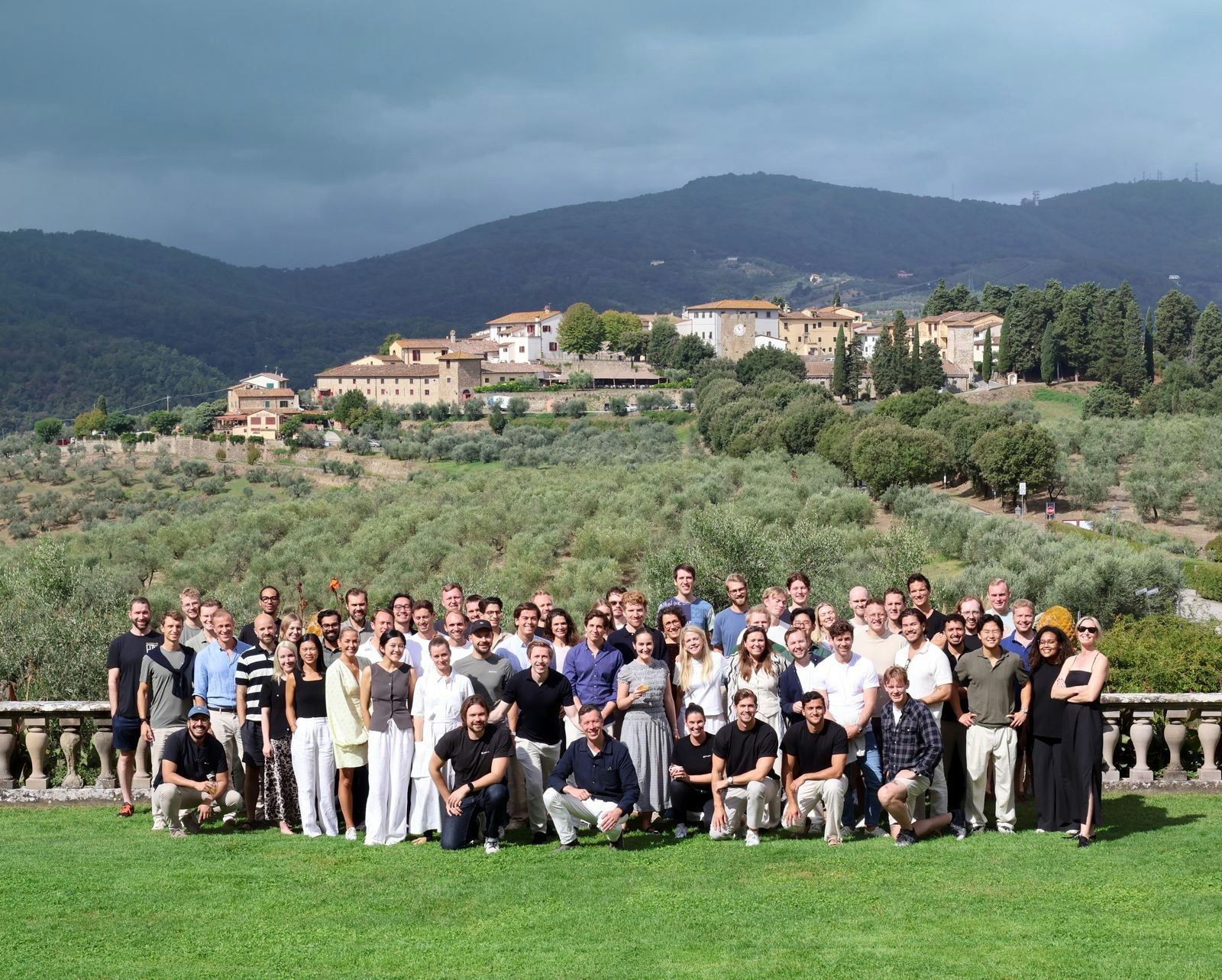Having blood drawn at startup Aware’s new lab in Amsterdam is a fairly unassuming process. I arrive, am shown to a small office and three vials of blood are taken with minimal fuss. In around 10 minutes I’m back onto the busy morning streets of the Dutch capital.
Within 48 hours the results will be sent to Aware’s app on my phone — showing 44 biomarkers analysing areas like heart, kidney, liver and blood health and explaining what they mean. I’ll be recommended lifestyle advice and can book an appointment with a doctor to discuss my results. My experience was courtesy of Aware — but the standard customer would pay €179 a year for two blood tests and access to its app.
It’s all part of Aware’s goal of tapping into the incoming “generational shift” among consumers towards paying for preventative healthcare solutions, says founder and CEO Florian Meissner.
There are signs of it happening already, as more turn to wearable tech like Apple watches, Oura rings and apps to monitor their health. It amounts to a “massive opportunity in the market right now”, Meissner tells Sifted.
The lab in Amsterdam is the sixth the startup has opened — in its third country — since launching its first in Berlin in November 2023. It comes nearly 18 months after bagging a $15m seed round from investors including Lakestar and Cherry Ventures — and further expansion is on the cards before the year’s out.
Diagnostics-as-a-service
While many digital health startups are struggling to raise money and expand amid a tough market, it’s in the direct-to-consumer preventative space that a lot of today’s rare growth stories in the sector can be found.
Spotify’s Daniel Ek’s body scanning startup Neko Health, which has raised €60m from investors including Lakestar and Atomico, announced in April this year that it was expanding to the UK.
There’s also the UK’s Zoe, which provides microbiome testing and lifestyle advice on its app, which has raised $84.5m, according to Dealroom, from the likes of Balderton Capital and Daphni. The startup was one of the fastest growing startups in the UK in 2023.
Founded in 2021, Aware sells blood tests and access to its app as a subscription model — which can be taken at any of its labs across four cities in Germany, one in Austria and, now, one in the Netherlands. Customers can buy additional tests looking at things like hormone levels and thyroid health.
While Aware hasn’t invented any technology — it uses off-the-shelf equipment in its Berlin lab (the only one it owns) and partners with existing labs in the remaining five locations — it’s "innovating on business model and service delivery”, says Meissner.
What the startup has built is an app and user interface that can plug into “any lab backend” and allows users to get results from an in-person test back within 48 hours. It can take as long as a week if patients have a blood test in hospital or via their GPs, he adds.
The founder isn’t disclosing customer numbers, but tells Sifted that the number of blood tests Aware has carried out is in "four figures".
An unsolved market
The preventative care market is on the up.
Alongside a growing direct-to-consumer segment, as ageing populations put increasing strain on public healthcare systems across the globe, there have been rising calls for governments to ramp up spending on measures to prevent people from getting sick in the first place.
But there are big challenges facing the sector.
One is European consumers’ aversion to spending on healthcare. The vast majority of health spend in Europe is paid for by the state — and it can be a tough sell to ask customers to fork out sometimes hundreds of pounds in addition to state-provided care.
That’s led to hurdles in convincing consumers to come back as repeat spenders for some.
Zoe founder Tim Spector told Sifted in October 2023 that half of its customers only used the platform for six to nine months before leaving and a key focus was convincing them to stay for longer. The startup sells its microbiome testing kits for £300 and an ongoing monthly subscription to an app where users can track health data and access lifestyle advice, which costs up to £60 a month.
In April, Zoe announced it was making layoffs and cutting costs by 20% after “over-expanding” the team.
‘Trojan horse’
Price point can hurt a startup’s ability to retain customers, says Meissner, and later this week Aware is launching a more affordable €99 a year subscription — which includes one blood test instead of two.
He also tells Sifted that Aware will reduce in cost over time.
“The tech is getting better and better and the cost of testing machines is moving in one direction,” he says — pointing to genome sequencing testing units, which now cost less than $1000, down from $100m in 2001.
Eventually, Aware wants to make its blood tests available via public healthcare systems in Europe, says Meissner — but first the startup needs to prove it can run its service at scale.
Alongside opening another two labs in Germany, Aware will roll out in one — if not two — more European countries by the end of 2024, although Meissner is tight-lipped about exactly where.
“It’s fair to say English-speaking countries are low-hanging fruit for us,” he says. Countries like the UK and Nordics are both attractive, he adds, alongside others in southern Europe like Italy, Spain and Portugal.
Further down the line, Aware could also broaden its diagnostics offering to include STI and microbiome testing, says Meissner. It also hopes to begin collecting data from wearables like an Apple watch and combine them with results from physical tests to offer more bespoke lifestyle advice.
“We always joked that we built a trojan horse with our blood-based service,” says Meissner. “The goal is to offer any [test] a laboratory would offer and be the front end for this market.”



